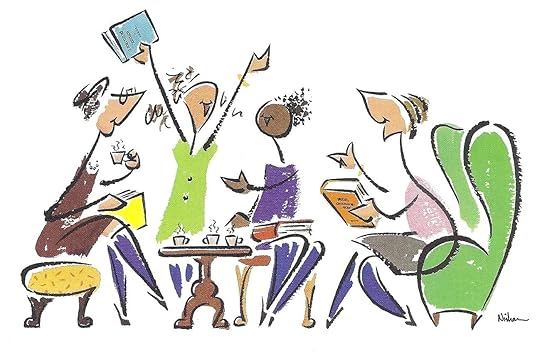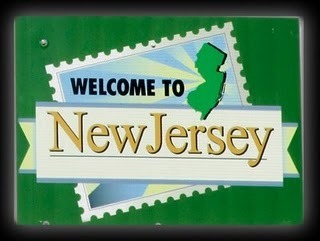S.W. Hubbard's Blog: Reading & Writing with S.W. Hubbard, page 7
April 7, 2016
Recurring Themes--The Well that Keeps Gushing
I'm the guest blogger over at Jungle Red Writers today. Come join the conversation on recurring themes that crop up unbidden in an author's work.
http://www.jungleredwriters.com/2016/...
http://www.jungleredwriters.com/2016/...
Published on April 07, 2016 06:02
July 28, 2015
Win an Amazon Gift Card
Hello Readers!
To feed your book addiction, I'm holding a giveaway on my blog. Hop on over and find out how to enter to win a $10 Amazon Gift Card.
http://swhubbard.net/enter-to-win-an-...
To feed your book addiction, I'm holding a giveaway on my blog. Hop on over and find out how to enter to win a $10 Amazon Gift Card.
http://swhubbard.net/enter-to-win-an-...
Published on July 28, 2015 06:44
•
Tags:
giveaway
June 29, 2015
Escaped Convicts in the Adirondacks: a Novelist's Gold

How’s this for the plot of an action thriller? Two cold-blooded murderers cut their way out of their cells using tools smuggled in a package of frozen ground beef (what? Not a baked into a cake?), traverse the heating and water pipes of the prison, pop out of a manhole on the main street of a small town, lead 1,300 cops (1,300!!) on a goose-chase that criss-crosses the state, elude capture for nearly three weeks despite having no money or assistance, and are finally found not more than 30 miles from the prison.
If I could manage to get a story like that past an editor, can you imagine the one-star reviews I’d receive on Amazon? “Preposterous ”… “Outlandish” … “Over-the-top” …“Don’t waste your time.”
Luckily, I don’t write action thrillers; I write character-driven mysteries. So the actual mechanics of the recent escape from Dannemora Prision in the Adirondacks don’t interest me as much as the personalities of the main players. That’s where I see a treasure-trove of possibilities, enough plot ideas to fuel five novels.
First, the convicts: these are not Shawshank Redemption underdogs who were unjustly convicted. No, these two were vicious, guilty-beyond-a-doubt killers, but both men were highly intelligent, capable of long-term planning, and, apparently, quite charming. They used these skills, which could have served them well in a law-abiding life, to make their escape. Instead of being abused by guards, Richard Matt and David Sweat were able to turn the tables and manipulate the prison staff into aiding and abetting them.
They began with Joyce Mitchell, an employee in the prison tailor shop. Joyce, Joyce—I know you well! The small towns in the Adirondacks are filled with Joyces. They belong to the women’s auxiliary of the volunteer fire department where they mix the batter for the annual pancake dinner. They plant flowers in front of the town library and baby-sit for their neighbors. They’re married to cheerful lunks who take them for granted. They’re plain. Hardworking. Unappreciated.
Until one day this salt of the earth Everywoman launches into a liaison with two murderers. She jettisons her respectable life and agrees to go on the lam with them, driving their getaway car. And then, in a blinding “what-have-I-done?” moment, she panics and confesses all. Yes, Joyce is a novelist’s dream. The suppressed rage. The longing to be seen, really seen, as a woman. The astonishment at her own insanity.
Which brings me to Gene Palmer, the guard that Richard Matt seduced, not with romance and sex, but with art. Palmer gave the prisoners access to the netherworld of pipes behind their cells, allowing them to plan their route. This man sacrificed a 28-year career for a few well-executed if not particularly imaginative paintings by Richard Matt. Seriously? An art-loving prison guard? To appreciate the magnitude of what he did, you must understand how highly coveted these prison jobs are in the Adirondacks. They are one of the few positions that provide a good steady income with benefits, allowing a man to stay in the region he loves instead of being forced to migrate for work. Perhaps only a novelist could fathom the twisted relationship between guard and guarded that inspired him to take such a risk.
The final complex character in this tale is the Adirondack landscape itself. Late spring/early summer is not the season that finds the mountains at their best: chilly, rainy, muddy, and most of all, buggy. Hikers and hunters stay home, waiting for the weather to improve. That leaves the dense forest and the network of well stocked hunting cabins wide open and empty, just waiting to absorb two fugitives. Perhaps nowhere else in the country could two men have disappeared so completely, yet still found the sustenance they needed to survive.
By refusing to raise his hands on command when cornered, Richard Matt seems to have chosen suicide by cop. David Sweat, wounded but captured alive, will certainly return to a prison environment much harsher than the one he escaped from. And I will return to writing mysteries set in the Adirondacks with a wealth of new ideas to exploit. Don’t expect a prison break novel, but if you read closely, you might find characters based on Joyce, Gene, and Richard. You’ll certainly see one of those vacant hunting cabins. And you’ll find Police Chief Frank Bennett trying to puzzle his way through the complexities of the human heart. If you haven’t yet read the Frank Bennett mysteries, you can start now with Take the Bait, The Lure, Blood Knot, and Dead Drift
Published on June 29, 2015 08:32
•
Tags:
adirondacks, convicts, mystery
May 21, 2015
What's in a Name?

Imagine if you gave birth to a beautiful baby, perfect in every way. You nurtured her and watched her grow and she became more precious to you with every passing day. You gave this beautiful baby a beautiful name: Cassandra.
Then one day your baby went off to school and the teacher told you she could no longer be known as Cassandra. She must be given a new name.
Gertrude.
This is what happened to me, not with my daughter, but with my mystery novel. Way back in 2003, I wrote my first mystery novel, which took place in a small town in the Adirondacks called Trout Run. I titled it Take the Bait because my detective, Frank Bennett, refused to take the bait when people tried to mislead him in his quest for the truth. My publisher, Pocket Books, liked it so much that they insisted that every book in the Trout Run series have a fishing-themed title even though the books themselves had absolutely nothing to do with fishing. Themed series titles were really big then—think Janet Evanovich’s Number series and Sue Grafton’s Alphabet series.
So I began writing the second novel in the series. It was about a black market adoption scam, and I immediately titled it The Lure because it was about the lure of a healthy white infant to desperate adoptive parents. Every day for a year I opened the Word file called The Lure and lovingly developed the story, page by page, character by character. Finally, I sent The Lure off to my editor. And she loved it. Then she sent The Lure to the Marketing Department. And they hated it. Not the story, but the title. The Lure, they said, was too literary.
What? Are my readers chopped liver? They’re not capable of appreciating a good metaphor?
Despite my protests, the Marketing Department decreed that the second book in the series would be titled Swallow the Hook.
Swallow the Hook?? Fish, I pointed out to the Manhattanites in Marketing, do not swallow hooks. They swallow the bait: worms and minnows and bugs. And what did that title have to do with illegally adopted babies? To make matters worse, Marketing decided to put an image of the mythical Trout Run on the cover. Except no one in Marketing had ever traveled north of W. 86th Street because the image they chose looked like a town in the Wild West, not the Adirondacks.

So my precious baby was saddled with a bad title and a bad cover. Fast forward 11 years. I have regained the publishing rights to Swallow the Hook and Blood Knot (the third book in the Adirondack series) and I am reissuing them at a lower price (yay for my readers!). And Swallow the Hook is reverting to its original title: The Lure.
You can buy The Lure right now as an ebook (only $3.99) or paperback. Since the reissued books lost their original Amazon reviews, I am holding a giveaway of a $25 Amazon giftcard to encourage new reviews. Everyone who posts a review of The Lure on Amazon before June 1 will be entered in the drawing. Please let me know in the comments below which review is yours.
Look for the reissued Blood Knot in June. I hope to write a new Frank Bennett adventure later this year. But I think I’m done with fishing titles!
February 9, 2015
The Mystery of Hoarding

Who among us has not watched an episode of Hoarders and thought, “At least I’m not as bad as that!” Everyone has too much stuff, except for those owners of minimalist apartments featured in Architectural Digest (and I always suspect they have a back room filled with two Barcaloungers, a stack of unread newspapers, and Rubbermaid crates full of out-of-season clothes).
Letting go of our stuff is hard because each item is more than just the plastic or metal or ceramic it’s made of. Some items are pieces of the past: Throwing away my daughter’s lacrosse stick was tantamount to discarding six years of chilly spring afternoons cheering in the stands. Some items are moral judgments: Discarding those perfectly good shoes that never got broken in is downright shameful when so many people have no shoes at all. Tossing the old waffle iron is fraught with peril: what if I have to make waffles for twenty-five and need two waffle irons to cope? And some items simply aren’t ripe for removal, so they go to the purgatory of the attic or the spare bedroom closet to await their future trip to dump hell.
Still, as hard as editing our junk is, most of us manage to either toss it or at least recycle it via Craigslist or the church bazaar.
But what if you could never let anything go? And what if you kept acquiring more and more? What would happen when your obsession affected not just your own life, but the lives of your family, friends, and neighbors?
And finally, when you’d spent years accumulating so much stuff that every room in your house was filled to the ceiling, what might lie forgotten beneath it all?
Those are the questions I wanted to tackle in Treasure of Darkness
 . So I gave my protagonist, estate sale organizer Audrey Nealon, a doozy of a job: find the one needle of value in a grotesque haystack of hoarded junk. In the process, she becomes entangled in the lives and secrets of the hoarder, his family, and his neighbors.
. So I gave my protagonist, estate sale organizer Audrey Nealon, a doozy of a job: find the one needle of value in a grotesque haystack of hoarded junk. In the process, she becomes entangled in the lives and secrets of the hoarder, his family, and his neighbors.One of the best things about writing fiction is that it gives me an opportunity to grapple with issues I can’t fix in real life. For fifteen years, I’ve volunteered at the Community Soup Kitchen of Morristown. The experience has opened my eyes to the suffering of the mentally ill and the terrible challenges faced by the people who try to help them.
In Treasure of Darkness, I try to shed some light on these dilemmas. Unlike homeless animals and orphaned children, Harold the hoarder is not easy to love. He’s obstinate, unattractive, and tuned-in to a different logic than everyone else. The frustrations of his family and neighbors are totally understandable. Yet Harold’s essential humanity—his interests and intelligence and affections—are still present beneath the shroud of his mental illness. Audrey and her assistants, Jill and Ty, are torn by revulsion, fear, and compassion as they are drawn into Harold’s bizarre world. And, of course, since this is a mystery, they uncover some dark secrets along the way.
You can meet Audrey, her crew, and Harold here http://bit.ly/1z2CxR7, in the first chapter of Treasure of Darkness. The book is available in paperback and on Kindle here: http://amzn.to/1uCF2tN
I suspect you’ll see just a little bit of yourself in Harold. So come clean (so to speak)—what items do you find impossible to throw away?
May 13, 2014
Difficult Fictional Characters: Love ‘em or Leave ’em?
 When I lived in Manhattan in my early twenties, I had a friend who was an extraordinary musician, funny, smart, and generous.
When I lived in Manhattan in my early twenties, I had a friend who was an extraordinary musician, funny, smart, and generous.She was also moody, quick to take offense, irrational, and self-destructive. In the five years I knew her, she spent at least a year of days not speaking to me.
After I married and moved out of the city, she and I lost touch because I didn’t send any Christmas cards one year, but she sent me one and got mad and… You get the picture.
She was difficult.
While difficult characters can be stressful in real life, they make for great fiction. Some of the fictional characters who have stuck with me most intensely are also difficult: Olive Kitteridge, Theo Decker in The Goldfinch, Nick Dunne in Gone Girl, Rachel in The Poisonwood Bible, Catherine Land in A Reliable Wife. All of these books were bestsellers with thousands of positive reader reviews. But they all have a sizeable number of negative reviews, and the negatives share a theme: “I didn’t like these characters. They weren’t nice people.”
When I read negative reviews like that, I’m motivated to run right out and buy the book. I’m pretty confident a book full of difficult characters won’t be boring or predictable or sappily sentimental. Difficult characters create conflict, and conflict is the essence of story. Difficult characters make me want to cover my eyes while screaming “no!” and then peep through my fingers to see what those crazy people will get into next.
Difficult characters are not always villains. A serial killer is not difficult; he’s evil through and through (which is why I don’t like serial killer books). Difficult characters are complex, they have good qualities but they usually create the very situations that bring them grief. Perhaps that’s why some readers don’t like them—if you read to escape reality, difficult characters will bring you hurtling back down to earth. And difficult characters also hold up a mirror and show you your own shortcomings, a sight you may not be happy to see.
Difficult characters are challenging to write. Giving your hero or heroine serious flaws can be risky because if the character is entirely unsympathetic, readers may slam the book shut with a loud “who cares?!”. To me, a successful difficult character possesses a modicum of self-awareness. He often knows what he should be doing, even if he’s not quite able to do it. I feel this way about my own creation, Roger (Audrey's father) in Another Man's Treasure
I haven’t seen my difficult friend for years, yet I still think of her. Indeed, there are times when I’m in the company of perfectly nice people that I long for her outrageous opinions and unreasonable demands…just a little. She was difficult, but she was never dull.
Who are some of your most memorable difficult fictional characters? Do you love them, or hate them? Or both?
Published on May 13, 2014 15:03
•
Tags:
difficult-fictional-characters, novels, writing
April 24, 2014
What is it about women and book groups?

What is it about women and book groups?
I’ve belonged to my book group, The Renegades, for ten years. As an author, I’ve visited many more--some that are run with as many regulations as the FDA and some that are as free-form as a Unitarian wedding. But they have one thing in common: they’re all made up of women. Middle-aged women.
Why do women gravitate to book groups?
I know plenty of men who like to read, but none who are in a book group. I even know men who like to talk, but none of them are in a book group either.
Women like to talk about people and relationships; men don’t. My husband once went out drinking with a friend who’d just broken up with his wife. When he came staggering home at 2AM, I jumped him with questions. What went wrong in their marriage? Was there a third party? Was Ed depressed? I don’t know, I don’t know, I don’t know was all I got in reply. Finally I demanded, “Well, what on earth did you talk about?”
“Interest rates.”
Women, even Wall Street women, never go out with their friends and talk about interest rates. When we’re in our teens and twenties, we gather to dissect the signals emitted by the guys we’re dating, the guys we wish we were dating, and the guys who dumped us. In our thirties, we gather to discuss our bosses, our new husbands, and our new babies. But by the time we reach our forties, fifties and beyond, we’ve pretty much got the people we actually know figured out. Or, we’ve given up on figuring them out. What relationships are left to discuss? Fictional ones, of course!
Why did the mom in Room push her son away after the escape? How much did the father know in Defending Jacob? What made the wife in What Alice Forgot change so much? Did he or didn’t he in In the Lake of the Woods? Most of all, what would we ourselves do in those situations?
As we move through life, so many of our friendships are formed by proximity: college dorm-mates, work colleagues, neighbors, parents of our children’s friends. I value those friendships, but my book group friends are special. We come together every month (and we never miss) to escape the people and problems we really know in favor of people who’ve come to life on the pages of the books we read. Husbands and children sometimes dart through the meeting, but they quickly scurry away. This is not their time. After a few “how have you beens?” we dive in and discuss, and our opinions of fictional characters are never rejected as interfering and judgmental and clueless. We disagree, but we never fight. We never tune one another out.
Book group—better than life.
Men just don’t know what they’re missing.
Published on April 24, 2014 13:07
•
Tags:
book-club, book-discussion, book-group, women
February 28, 2014
5 Mysteries with a New Jersey Edge

Hey, how you doin’?
Today, I’m here to tell you about some mystery series that have a special je ne sais quoi.
Je ne sais what? Hey, this is Jersey—we’re talkin’ Jersey Edge.
New Jersey—where the surf is high and the politics is low-down. We’re impatient, brutally honest, and, as Jon Stewart points out, we have a severed horse head on our state flag. We’re also tolerant (transgender Albanian Scientologist?—hey, whatever floats your boat); resourceful (a jet just landed in the Hudson river?—guess we better reroute the ferry over there and see what’s up); and epicurean (only turkey on Thanksgiving? Where’s the lasagna?)
And we’re funny. Really funny.
All that fabulousness makes New Jersey the most densely populated state in the Union. But if you’re not lucky enough to live here, you can still experience the Jersey edge through these mysteries:
Chris Grabenstein’s John Ceepak mysteries All the titles come from Boardwalk attractions (Tilt-a-Whirl, Whack-a-Mole) in this charming series that illustrates what the Jersey shore is really like. Guaranteed Snooki-free.
Brad Parks’ Carter Ross mysteries Set on the mean streets of Newark, these mysteries star an investigative reporter who gets to the bottom of Jersey-style corruption and murder with a blend of humor, compassion, and courage. You’ll love the colorful cast of sidekicks only Jersey could produce.
Jeff Cohen/E.J. Cooperman mysteries Jersey born and bred, Jeff/E.J. has written three different humorous mystery series, all set in the not-so-mean suburbs and small towns of the Garden State. All three will keep you guessing—and laughing—right to the final pages. The new Haunted Guesthouse series also adds a supernatural flair. Turns out even dead New Jerseyans have a sense of humor!
Wallace Stroby’s Crissa Stone thrillers Crissa Stone is a professional thief who spends her time with an ill-assorted cast of Jersey grifters and mob thugs. This is hard-boiled, noir writing at its best. Is Jimmy Hoffa buried under Giants Stadium? Crissa probably knows a guy who knows a guy who knows. Fer sure.
S.W. Hubbard’s Audrey Nealon mysteries Okay, it’s not a series yet, but I am hard at work on the sequel to Another Man's Treasure
 . As an estate sale organizer, Audrey Nealon treads a line between the wealthy, privileged areas of New Jersey and the grittier milieu of struggling immigrants and troubled street people. In her upcoming adventure, Audrey’s attempts to help a mentally ill hoarder and recover a mistakenly discarded treasure lead her into peril. To read the first chapter of Another Man’s Treasure, or sign up for my mailing list to be notified when the sequel is released, visit http://www.swhubbard.net.
. As an estate sale organizer, Audrey Nealon treads a line between the wealthy, privileged areas of New Jersey and the grittier milieu of struggling immigrants and troubled street people. In her upcoming adventure, Audrey’s attempts to help a mentally ill hoarder and recover a mistakenly discarded treasure lead her into peril. To read the first chapter of Another Man’s Treasure, or sign up for my mailing list to be notified when the sequel is released, visit http://www.swhubbard.net.
Published on February 28, 2014 13:56
•
Tags:
funny, mystery, mystery-series, nj
February 14, 2014
Mystery Heroes to Take to Bed
In honor of Valentine’s Day I’m creating this list of my favorite mystery heroes to take to bed--quirky, tough, funny, smart, profane, and all sexy each in his own way. Of course, the stereotypical mystery hero is an alcoholic loner incapable of sustaining a relationship, but most of my favorites actually have a track record of romantic success (with one notable exception).
Lee Child’s Jack Reacher: Women love the unattainable, and no one is more out-of-reach than Reacher. He blows into town with nothing but the clothes on his back, solves the crime, beds the girl, and rides into the sunset. Still, he’s unfailingly tender and often sweetly shy with the ladies. My only problem with Reacher—he doesn’t even own a toothbrush or a change of socks. Eeew!
Cynthia Harrod-Eagles’ Bill Slider: Bill has lately settled into domestic bliss with his violist second wife, but the books in which he struggled to choose between his loyalty and responsibility to his first wife and his passion for the musician he never intended to pursue were fraught with tormented romance.
Dennis Lehane’s Patrick Kenzie—Patrick is the ultimate bad boy saved by the love of a good woman. His unwavering devotion to the feisty Angie Gennaro is what we ladies all secretly crave.
Julia Spencer-Fleming’s Russ VanAlstyne—No one does forbidden love better than married cop Russ and risk-taking Episcopal priest Clare Ferguson. The “will they or won’t they” is sustained over quite a few books (some might say too many) but the sexual tension is what makes their love so hot!
S.W. Hubbard’s Frank Bennett—Well, come on—I had to put my main man on the list! Still recovering from the sudden loss of his wife, Frank stumbles endearingly through the uncharted waters of mid-life romance. After resisting other people’s efforts to match him up with the safe and the dowdy, Frank’s romantic prospects are finally looking up at the end of Dead Drift .
.
Happy Valentines Day! Even if your bed is already occupied with your real-life hero, I hope you make room for these noble fellows!
Tell me, who are your favorite mystery heroes?
Lee Child’s Jack Reacher: Women love the unattainable, and no one is more out-of-reach than Reacher. He blows into town with nothing but the clothes on his back, solves the crime, beds the girl, and rides into the sunset. Still, he’s unfailingly tender and often sweetly shy with the ladies. My only problem with Reacher—he doesn’t even own a toothbrush or a change of socks. Eeew!
Cynthia Harrod-Eagles’ Bill Slider: Bill has lately settled into domestic bliss with his violist second wife, but the books in which he struggled to choose between his loyalty and responsibility to his first wife and his passion for the musician he never intended to pursue were fraught with tormented romance.
Dennis Lehane’s Patrick Kenzie—Patrick is the ultimate bad boy saved by the love of a good woman. His unwavering devotion to the feisty Angie Gennaro is what we ladies all secretly crave.
Julia Spencer-Fleming’s Russ VanAlstyne—No one does forbidden love better than married cop Russ and risk-taking Episcopal priest Clare Ferguson. The “will they or won’t they” is sustained over quite a few books (some might say too many) but the sexual tension is what makes their love so hot!
S.W. Hubbard’s Frank Bennett—Well, come on—I had to put my main man on the list! Still recovering from the sudden loss of his wife, Frank stumbles endearingly through the uncharted waters of mid-life romance. After resisting other people’s efforts to match him up with the safe and the dowdy, Frank’s romantic prospects are finally looking up at the end of Dead Drift
 .
.Happy Valentines Day! Even if your bed is already occupied with your real-life hero, I hope you make room for these noble fellows!
Tell me, who are your favorite mystery heroes?
January 10, 2014
Read Less, Enjoy More

January is full of lists. “Best of” and “worst of” and “most important of” the year that just passed, followed by jumbo lists of all the things we should do in the year to come. Here on Goodreads, we can see how many books we read in 2013, and challenge ourselves to read even more in 2014.
The emphasis always seems to be on quantity, not quality.
How can we encourage ourselves to get more pleasure from reading this year? In keeping with the spirit of the season, I offer you this list.
Read with friends—My book group brings great joy to my life. Yes, we gossip and drink wine and eat cookies, but we also have serious, thought-provoking discussions of the books we read. And Chris always spots metaphors that sailed right over the head of miss smartypants English major/author here. So join a book group, start a book group, or just talk to a friend about what you’re both reading. It will enrich your reading experience.
Recommend books—The best way to find someone to discuss books with is to recommend to your friends books that you loved or that you found perplexing. Face-to-face, or online, don’t be shy—your friends will appreciate it.
Write reviews—Try to answer two questions as specifically as you can: What did I really enjoy about this book? What didn’t work for me? What specifically made it boring? Too much description? Repetitiveness? Why specifically did you love a character? Was she relatable, complex, funny? Putting your gut reaction into words can help you appreciate books in a deeper way.
Read outside your comfort zone, but quit if you really hate it—The only way to be brave enough to try a book you wouldn’t normally read is to give yourself permission to quit if you really hate it. Fifty pages—if a book can’t win you over by then, just put it down. Life’s too short to read books you’re not enjoying.
Read aloud—Reading aloud helps you appreciate a book’s word choice and rhythm. Short stories, like these in my new anthologyDead Drift are particularly good candidates for reading aloud. If you don't have access to kids, consider reading aloud to an elderly person or a sick friend—you’ll both benefit.
I wish you happy reading in 2014, no matter how many books you read. But if you’re looking for books to add to your TBR pile, you can certainly start here: http:www.swhubbard.net.
Published on January 10, 2014 08:42
•
Tags:
book-groups, reading, reviews
Reading & Writing with S.W. Hubbard
My philosophy is that people who love to read and love to write don't have a whole lot of time for following long-winded blogs. So, this will be a decidedly short-winded blog with a few breezy bits ab
My philosophy is that people who love to read and love to write don't have a whole lot of time for following long-winded blogs. So, this will be a decidedly short-winded blog with a few breezy bits about what I'm writing, what I'm reading, and what I'm teaching my students.
...more
- S.W. Hubbard's profile
- 452 followers



